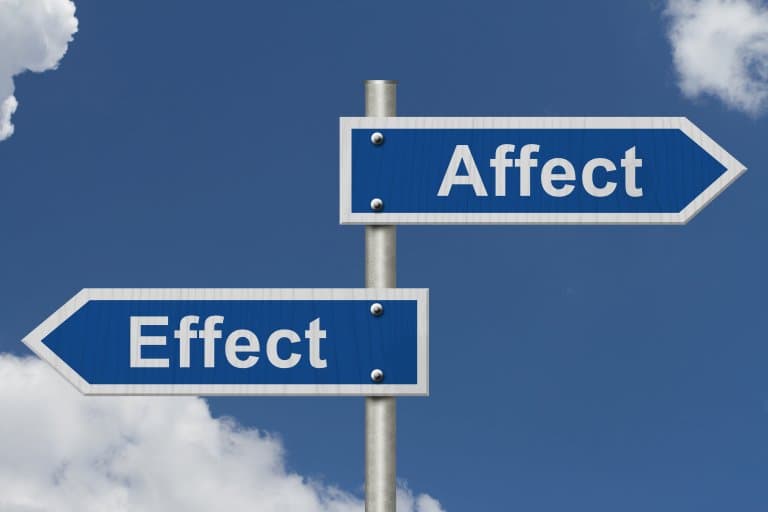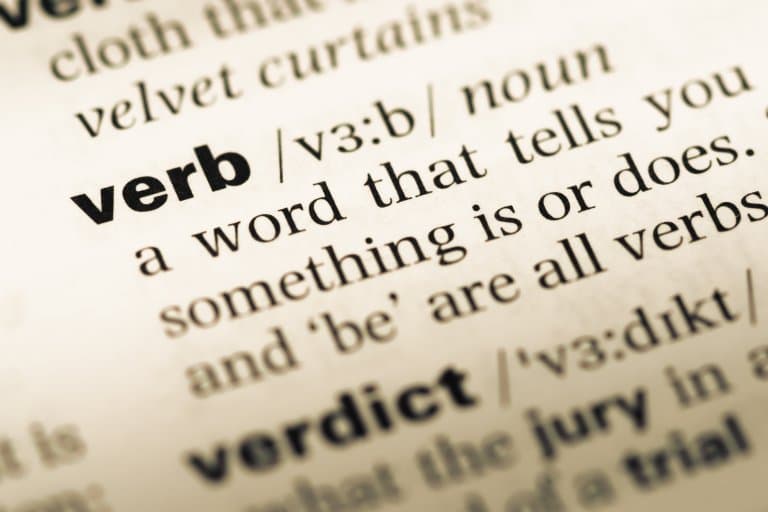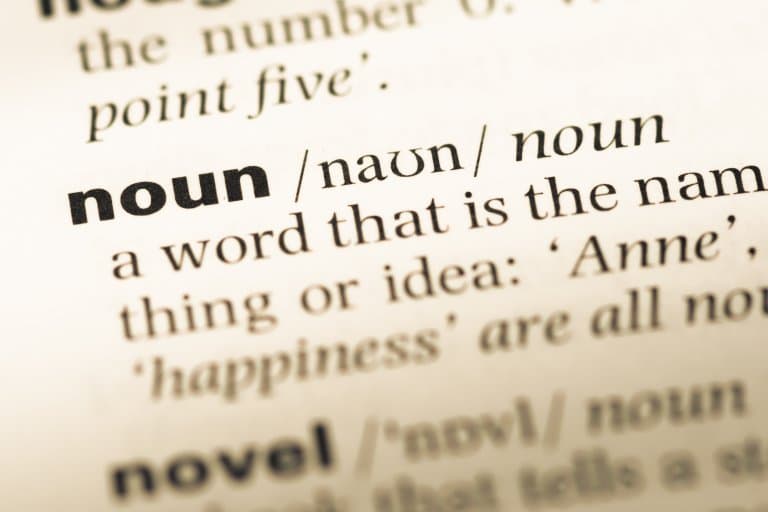The English language is a complex system of rules, nuances, and exceptions.
Two words that are often confused with each other are ‘affect’ and ‘effect’. While they sound similar, they do not have the same meanings, and each serve distinct grammatical roles.
So, what really is the difference between ‘affect’ and ‘effect’?

The TL;DR
‘Affect’ is generally used as a verb and ‘effect’ is more commonly employed as a noun. However, there are some situations in which ‘effect’ can act as a verb.
‘Affect’ and ‘effect’ have distinct definitions – ‘Affect’ means to impact or change, while ‘effect’ is used to indicate the actual result of a change.
They are known as ‘homophones’, which are words having the same pronunciation, but different meaning and spelling. They are used differently in sentences.
The RAVEN trick is often used to differentiate between the two.
Read on for the detail.
The Difference Between ‘Affect’ and ‘Effect’
In the intricate landscape of the English language, few pairs of words are as perplexing as ‘affect’ and ‘effect’. They are easy to mix up.
So, let’s explore where confusion can arise from and describe the various situations in which ‘affect’ and ‘effect’ can be used.
What is ‘affect’?
The word “affect” is employed as a verb. Verbs represent an action or a process.

A tip to remember this is that ‘A‘ is for action, and verbs are all about action. Affect starts with an ‘A’.
In English, “affect” and “effect” are homophones, which are words that sound the same but have different meanings and spellings.
According to the Merriam-Webster dictionary, “affect” means to act on and cause a change in something or someone. This term can be used in a wide range of sentences.
How to use ‘affect’
Use the word ‘affect’ when you’re talking about producing a change or making a difference.
For instance: “Rainfall affects plant growth”, “The experience affected him greatly”, and “Your opinion will not affect my decision”.
The RAVEN trick is a well-known trick to remember the difference between “affect” and “effect”.
It goes like this – Remember Affect is a Verb and Effect is a Noun.
What is ‘effect’?
In contrast to ‘affect’, ‘effect’ is mainly used as a noun. Nouns represent a person, place, thing, or concept. They are used to identify objects.

As mentioned above, ‘affect’ and ‘effect’ are homophones. Other examples of homophones include: buy/by, whether/weather, and week/weak.
How to use ‘effect’
‘Effect’ can be written as a noun or a verb. As a noun, it represents a change that is a result of an action or other cause. It is the outcome or consequence of an event.
For example: “The medication had an immediate effect”.
As a verb, ‘effect’ means to cause or bring about an event. For instance: “The company wanted to effect positive change in the community”.
A tip to remember this is ‘effect’ is often the ’cause’. So think of the common phrase ’cause and effect’. Cause ends with an ‘e’, and leads onto the beginning letter of ‘effect’.
Summary
Ultimately, ‘affect’ and ‘effect’ continue to be a pair of words that are often confused in the English language. The key to distinguishing the two is to remember that one is a verb (affect) while largely used as a noun (effect).
- ‘Affect’ signifies the action of influencing something.
- ‘Effect” is mainly the outcome of an action.
The affect of reading this guide (an action) might result in the effect of correctly writing the words ‘affect’ vs ‘effect’ in the future (the outcome).
By knowing the distinction between the two, you’ll be able to communicate more effectively and precisely.
And that’s the gist of it – the difference between affect and effect.